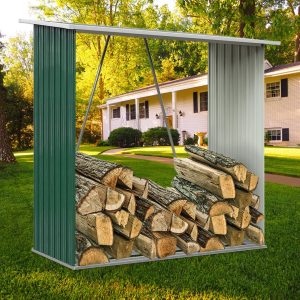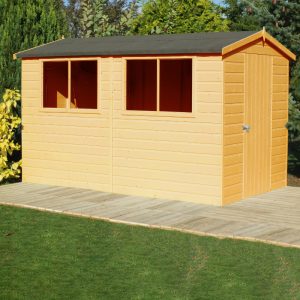Tiger Sheds 8’x3′ Timber Tiger Cabinet Store 3x Completely Panelled Shiplaps. The Tiger Triple Bin Cabinet is an amazing answer to concealing your trash cans discreetly and safely. Designed for simple entry and protection, every storage section includes its own lock to keep them shut until you want to unlock them. 8’x3′ Tiger Bin Cabinet Triple















































